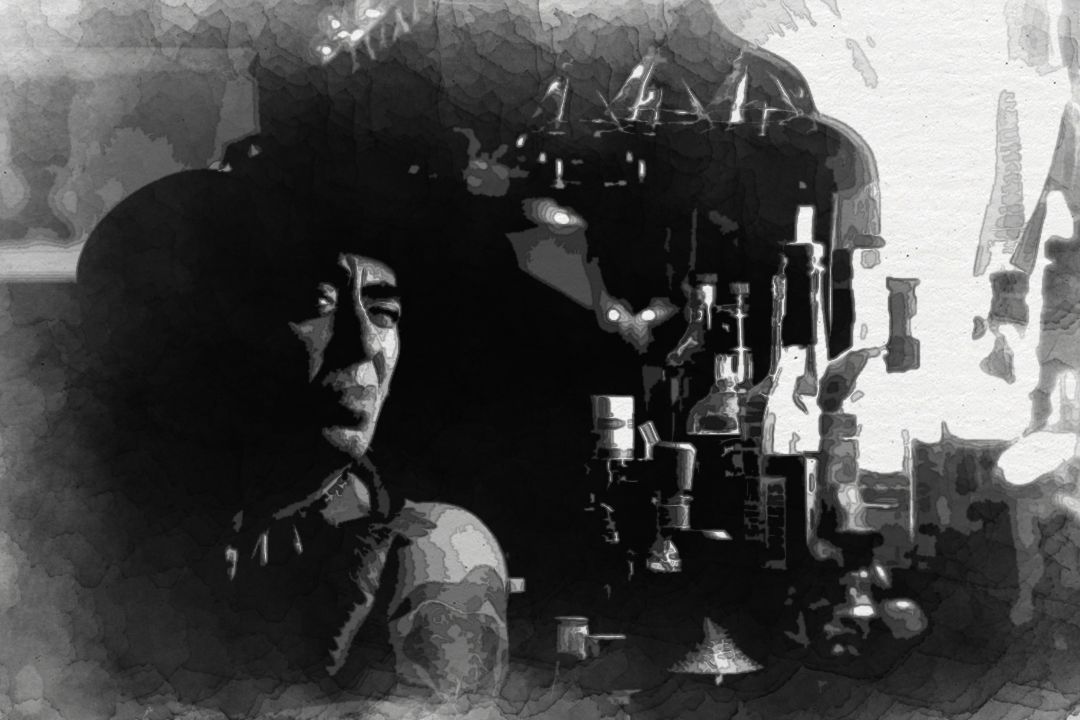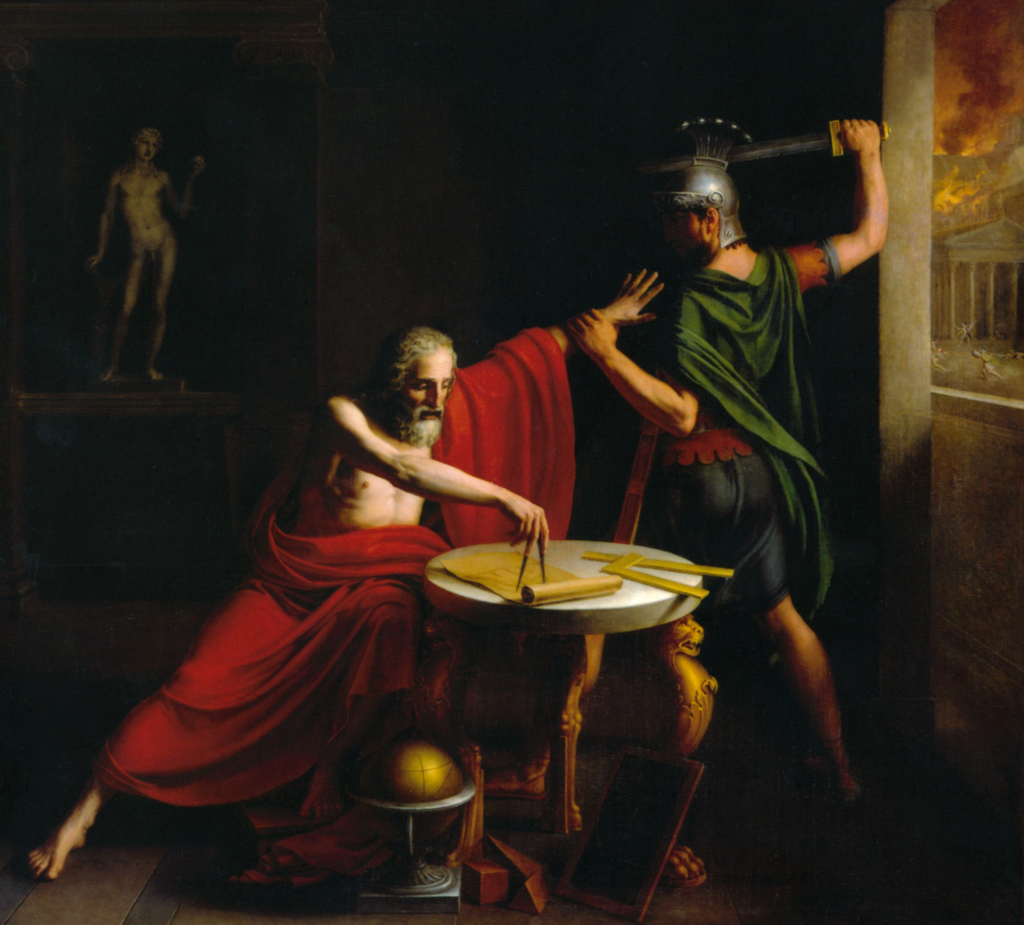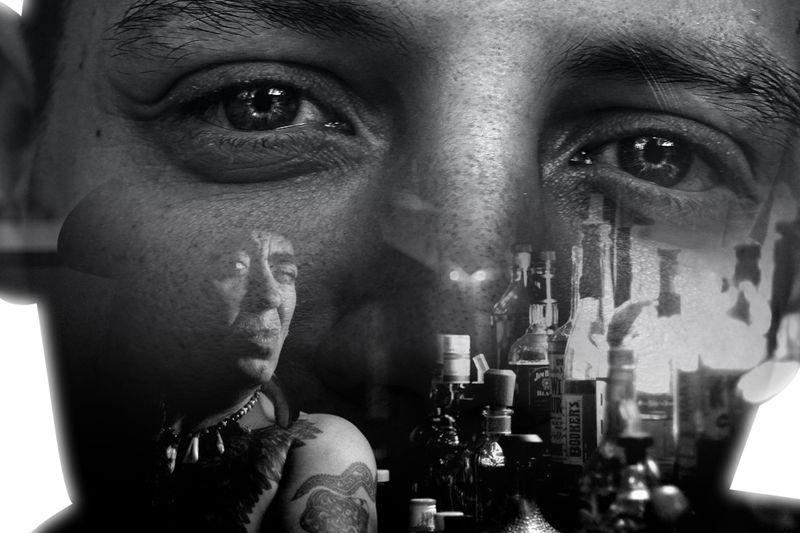There Are Good Poets and Not So Good Poets

Eye Sees Aid by the Balls
In the heart of a bustling city, where the whispers of the past mingled with the din of the present, a poet named Julian lived. This city, a labyrinth of stories, was his sanctuary, where dreams fluttered in the air like leaves caught in a gentle autumn breeze. With eyes like stormy seas, Julian saw the world not in black and white but in a kaleidoscope of emotions and colours. He lived by a philosophy, a creed borrowed from the past yet timeless in its truth:
A poet looks at the world the way a man looks at a woman.
— Wallace Stevens (1879-1955)
Once uttered by Wallace Stevens, this sentiment was the bedrock of Julian’s existence, his North Star in the vast cosmos of creativity.
Julian’s mornings began with a ritual that might seem peculiar to the untrained eye but was sacred to him. Before the first rays of dawn could banish the night, he would find himself on the rooftop of his aging apartment building, the city sprawling beneath him like a slumbering giant. Here, Julian danced. It was a dance of liberation, a silent prayer to the muses of old. He would often say, echoing the sentiments of Samuel Beckett,
Dance first. Think later. It’sJulian’s the natural order.
— Samuel Beckett (1906-1989)
And so, with the stars as his audience, he danced, each movement a verse, each step a story waiting to bloom.
Despite his ethereal connection to the world of art and beauty, Julian was tethered to the temporal realm by the mundane obligations of life. He was a revered columnist for “The City’s Whisperer,” a local newspaper that served as a mirror to the metropolis’s soul. Here, Julian was the voice of the unseen, the scribe of the silent whispers that echoed through the concrete canyons. But, akin to the whimsical Douglas Adams, Julian harboured a peculiar fondness for deadlines or their fleeting nature.
I love deadlines. I like the whooshing sound they make as they fly by.
— Douglas Adams (1952-2001)
Elise, a woman of steel and ink, had little patience for what she deemed ‘poetic procrastinations.’ She was the anchor in the tempest of creativity that swirled around “The City’s Whisperer.” To her, deadlines were sacred, inviolable temples of punctuality. Yet, in Julian, she faced her most significant challenge: a man for whom time was a fluid, ever-shifting stream rather than a rigid sequence of ticks and tocks.
Julian found himself trapped in a web of divine inspiration one day, an ordinary day by any account. The city had whispered to him a profound tale woven from the threads of history and human folly. It was the story of Archimedes, the ancient sage of Syracuse, whose life was a symphony of intellect and invention. Julian was entranced by the legend of Archimedes’ last stand, not at the hands of time but at the edge of a Roman sword. As the city fell, Archimedes, engrossed in the geometric mysteries that danced before him in the sand, uttered the words, “Noli turbare circulos meos” — “Do not disturb my circles.”

This historical vignette, a tragic ballet of genius extinguished by ignorance, haunted Julian. He saw in Archimedes’ demise a parallel to the modern human condition, the eternal tussle between creation and destruction, between the eternal quest for knowledge and the perennial march of folly. But how could he, a mere poet of the city, do justice to such a colossal narrative? How could he weave the threads of past and present into a tapestry that spoke not only of the death of a man but of the immortal dance of ideas?
Julian was caught in a vortex of thought and emotion as the hours slipped by, unheeded yet insistent. The deadline for his column loomed like a spectre, each tick of the clock a sad reminder of time’s relentless march. It was then that he remembered the lessons embedded in his musings and those of his philosophical forebears — to see, to see, one must first embrace the world with all its chaos and beauty.
He stood as if moved by an unseen force and began to dance. He danced in the cluttered sanctuary of his apartment, surrounded by the detritus of countless sleepless nights. He danced for Archimedes and for every soul whose light was snuffed out by the shadows of ignorance. He danced for the silent stories etched in the corners of the city, for the whispered dreams of the forgotten. It was a dance of defiance, a silent scream against the tyranny of the mundane.
And then, with the clarity of a star piercing the night, Julian wrote. He wrote of Archimedes, who moved the world but could not move the soldier’s heart. He wrote of the circles in the sand, symbols of eternity, of knowledge unbounded by the vicissitudes of life and death. He intertwined the ancient with the modern, the philosophical with the mundane, crafting a narrative that was as much a tribute to the past as it was a mirror to the present.
He wrote of the poet’s gaze, that unique lens through which the chaos of existence could be distilled into moments of sublime beauty. He wrote of the chaotic, unpredictable, yet inherently beautiful dance of life. And as he penned the final word, the noon sun casting long shadows across his desk, he knew. He knew that this column, this piece of his soul, was not a capitulation to the tyranny of deadlines but a testament to the human spirit’s indomitable will to create, understand, and remember.
The whooshing sound of the deadline passed unnoticed, unheeded, for Julian had transcended the temporal, weaving a narrative that bridged worlds and ages. In “The City’s Whisperer,” amidst the clamour of daily trivialities, a column spoke of more than just the city’s secrets. It spoke of the human condition, the eternal dance between light and darkness, the poet’s sacred duty to bear, remember, ander, and honour the circles in the sand.

The planksip Writers’ Cooperative is proud to sponsor an exciting article rewriting competition where you can win over $750,000 in prize money.
Figures of Speech Collection Personified
Our editorial instructions for your contest submission are simple: incorporate the quotes and imagery from the above article into your submission.
What emerges is entirely up to you!
Winners receive $500 per winning entry multiplied by the article’s featured quotes. Our largest prize is $8,000 for rewriting the following article;

At planksip, we believe in changing the way people engage; at least, that’s the Idea (ἰδέα). By becoming a member of our thought-provoking community, you’ll have the chance to win incredible prizes and access our extensive network of media outlets that will amplify your voice as a thought leader. Your membership truly matters!


